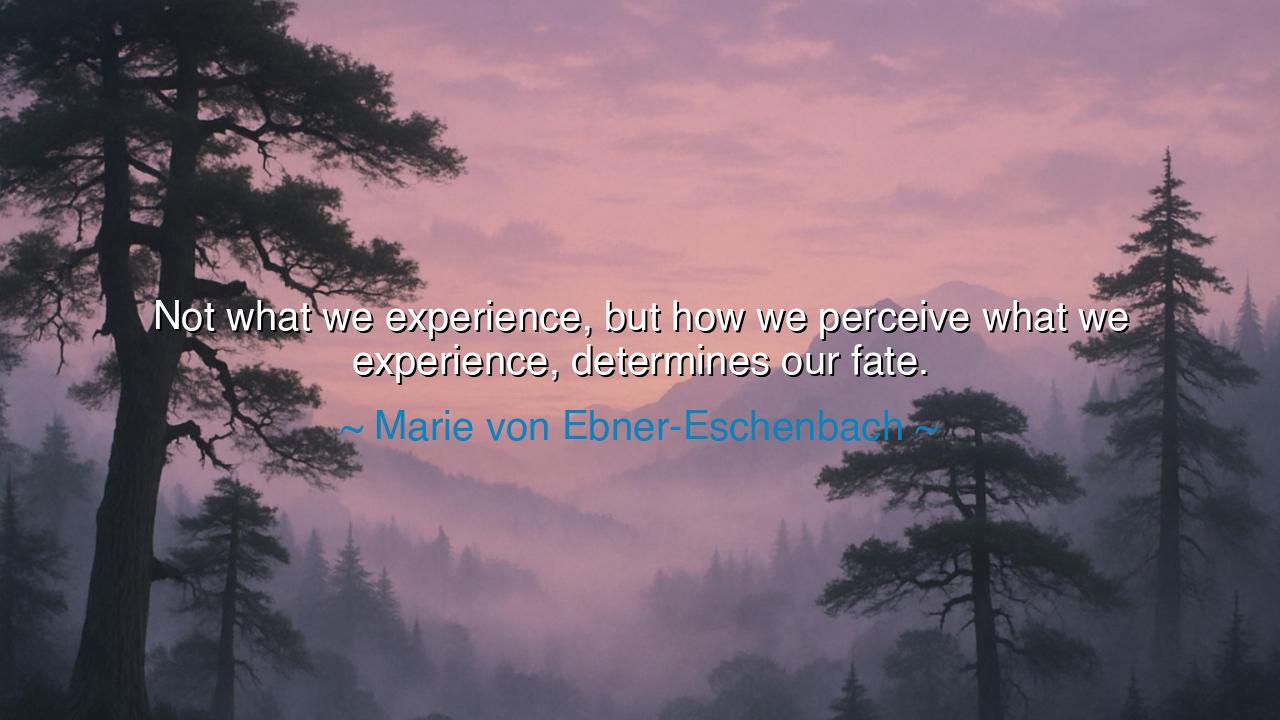
Not what we experience, but how we perceive what we experience






Host: The room feels calm, the soft evening light casting a gentle glow that invites deep reflection. Outside, the world continues its usual rhythm, but inside, the conversation feels like it’s about to touch on something profound—the role of perception in shaping our lives. Jeeny sits at the table, her fingers lightly tracing the rim of her cup, her expression thoughtful. Jack stands near the window, arms crossed, looking out at the street below.
Jeeny: (her voice gentle, yet filled with curiosity) “You ever think about how the way we see the world can change everything? How the same experience can feel completely different depending on how we perceive it, and how that perception shapes our path?”
Jack: (glancing over at her, his voice dry, but intrigued) “Perception shaping our path? Yeah, it’s interesting how two people can go through the same thing and have completely different takeaways from it. It’s almost like what happens doesn’t matter as much as how we choose to see it. What made you think about it?”
Jeeny: (nodding slowly, a small smile forming as she shares her thought) “I was thinking about something Marie von Ebner-Eschenbach said: ‘Not what we experience, but how we perceive what we experience, determines our fate.’ It made me reflect on how much control we have over our lives, not by controlling what happens to us, but by controlling how we respond and perceive what happens.”
Jack: (pauses, considering her words carefully) “So, she’s saying that our experiences alone don’t define our future—it’s how we perceive and interpret those experiences that truly shapes our fate? That if we change how we look at things, we can change the course of our lives?”
Jeeny: (smiling more deeply now, her eyes steady as she explains further) “Exactly. Ebner-Eschenbach’s point is that we have a lot of power over our outcomes because our perceptions influence how we react to life’s challenges. If we choose to see obstacles as opportunities or view setbacks as learning experiences, we change how we respond, which ultimately changes our future. Our fate isn’t just determined by what happens to us—it’s determined by how we process and handle it.”
Host: Jeeny’s words seem to settle in the room, creating a quiet shift in the conversation about the power of perception. Jack stands still, his expression softening as he processes the deeper message behind Ebner-Eschenbach’s statement. The world outside continues its rhythm, but inside, the conversation feels rooted in a more profound understanding of the role of perception in shaping our lives.
Jack: (his voice quieter now, almost reflective) “I see what she means. It’s not the events themselves that control us—it’s how we respond to them, how we frame them in our minds. If we change our perspective, we can change the way those events affect us, and in doing so, change the direction of our lives.”
Jeeny: (nodding slowly, her voice calm, yet filled with quiet strength) “Exactly. It’s empowering, isn’t it? To realize that we have the ability to shape our fate by changing how we perceive the world. The more we take ownership of our perceptions, the more we take ownership of our future.”
Jack: (pauses, a small smile forming on his face as the idea sinks in) “It’s liberating, isn’t it? To know that we have that kind of control, that the way we see the world is what ultimately shapes our experience. It’s not about external circumstances—it’s about how we choose to view them.”
Jeeny: (smiling warmly, her voice gentle, yet filled with wisdom) “Exactly. When we change our perceptions, we change the way we experience life. It’s not about avoiding challenges or pretending everything is perfect—it’s about seeing things through a lens of growth, opportunity, and resilience. That’s how we can shape our destiny.”
Host: The room feels lighter now, as though the conversation has shifted into a deeper appreciation for the role perception plays in shaping our lives. Jack turns from the window, his posture more relaxed, his thoughts clearly reflecting on the power of perception in determining his own path. Jeeny watches him, content in the realization that our fate is largely in our hands, shaped not by what happens to us, but by how we choose to perceive and respond to it. The world outside continues its rhythm, but inside, there’s a shared understanding that perception is a powerful tool for shaping the course of our lives.






AAdministratorAdministrator
Welcome, honored guests. Please leave a comment, we will respond soon